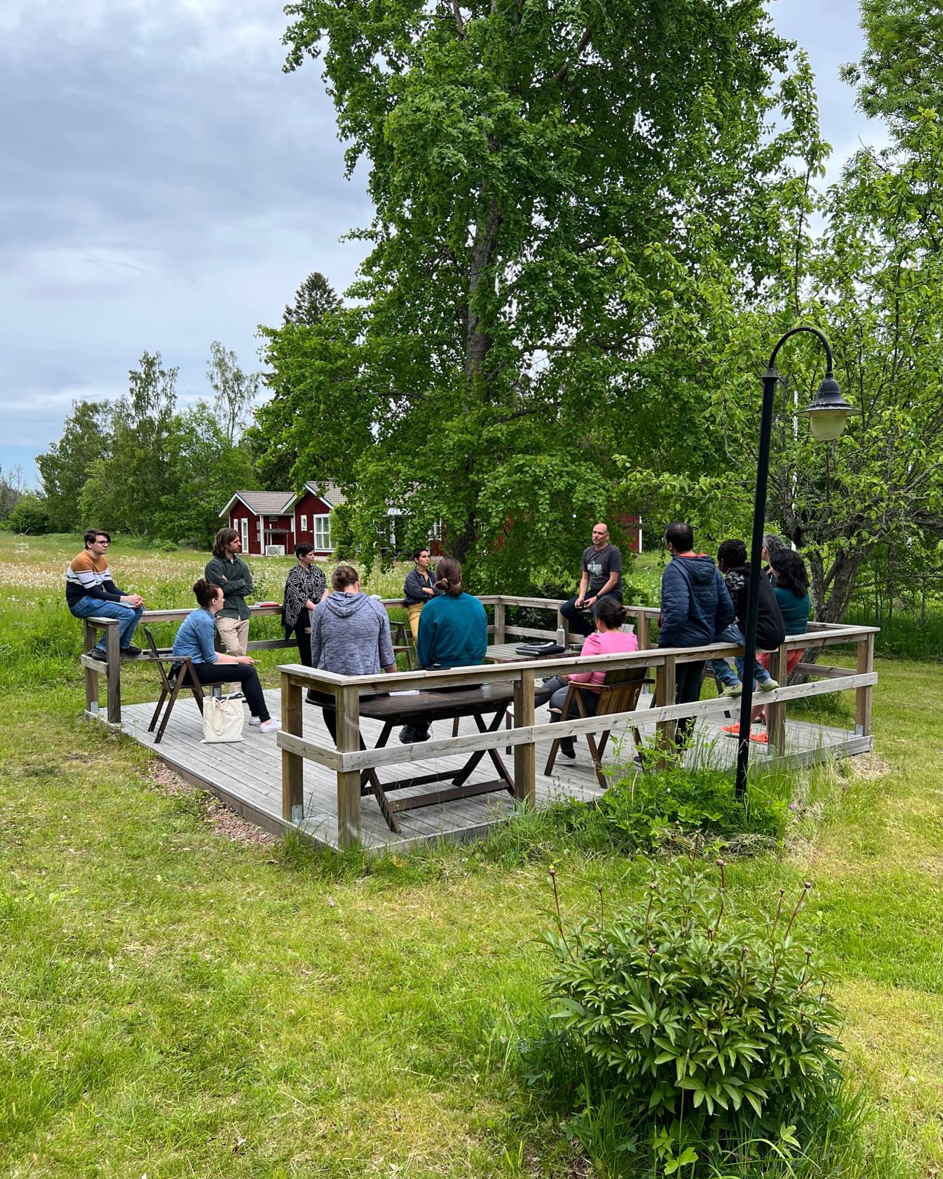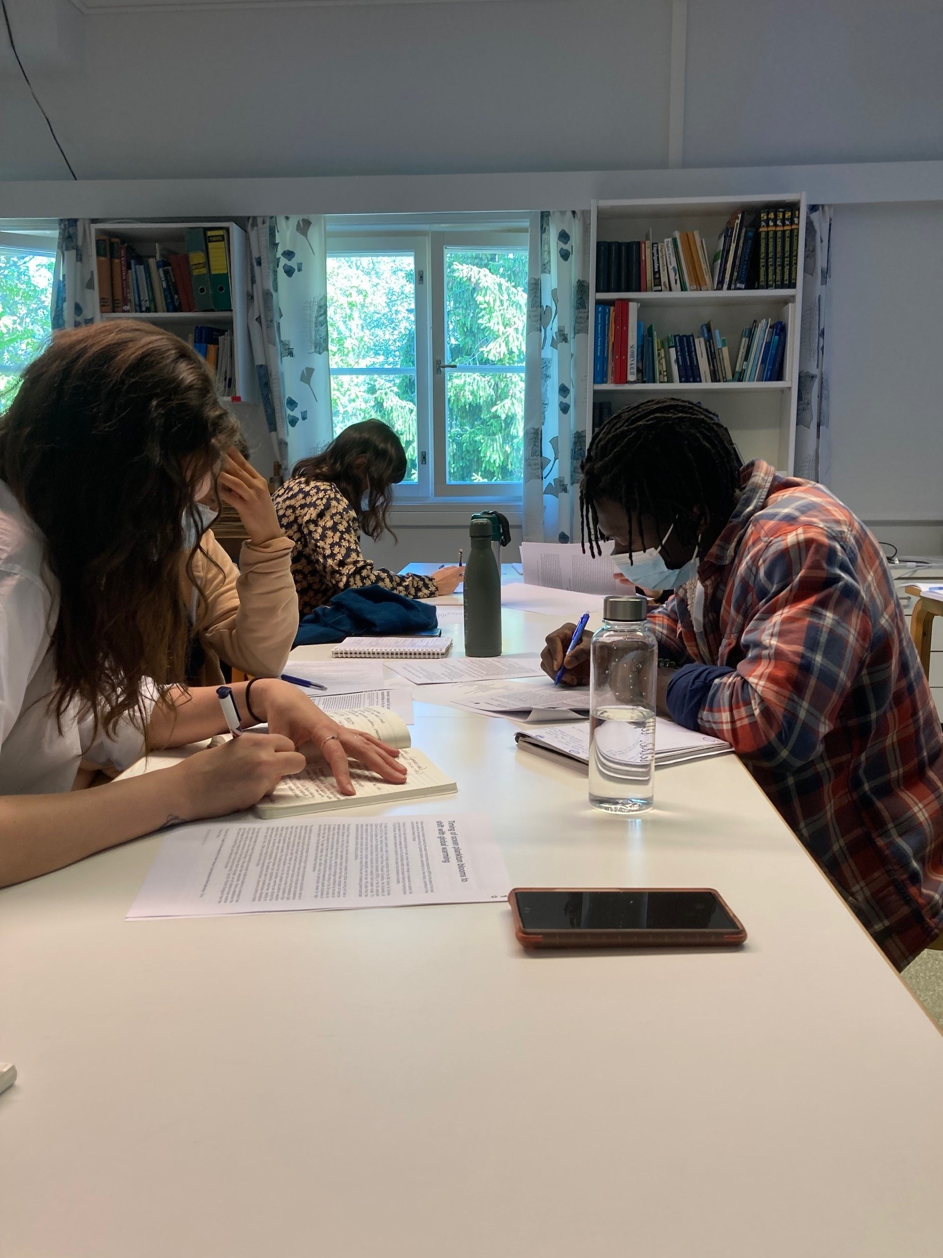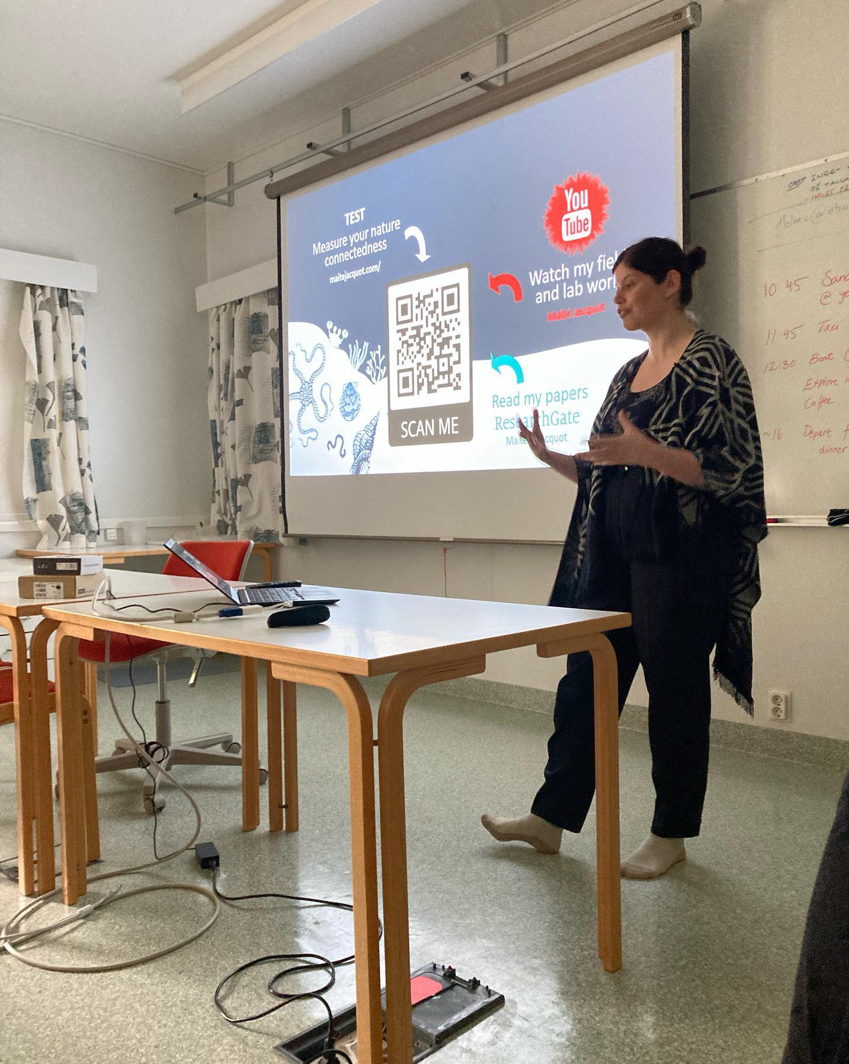The Ecotip Summer School – Ecological Tipping Points In The Arctic And How To Communicate Them
by Sabrina Heerema | Published: 28-Jun-22 | Last updated: 27-Jun-22 | Tags : | category:
Twelve early-career researchers participated in the ECOTIP summer school, held at Husö Biological Station on the Åland Islands, Finland from June 6th – 17th 2022.
During an intense two weeks, they received scientific lectures and practical training focusing on the rapid environmental, ecological and social changes happening in the Arctic – and how to communicate them - from world-class experts. The students also earned course credits, built their professional networks and showcased their research.

An outdoor lecture with Thorsten Blenckner at the beautiful Husö Biological Station.
Who participated?
Twelve incredibly talented and motivated early career researchers from various corners of the globe with an interest in the Arctic and/or marine tipping points spent the two weeks sharpening their skills on topics surrounding the rapid environmental, ecological and social changes happening in the Arctic.
The group included 10 PhD students, two post-doctoral researchers and one masters student, and were from the Danish Technical University (DTU) Aqua, IOPAN, Åbo Akademi, the Norwegian Polar Institute, the Alfred-Wegener-Institute (AWI), and the University of Vienna.
The trainers on the course included GRID-Arendal’s Björn Alfthan and Olivia Rempel; Stockholm Resilience Center’s Thorsten Blenckner; DTU Aqua’s Martin Lindegren and Andre Visser; Åbo Akademi University’s Anna Törnroos-Remes and Marie Nordström; Aalborg University’s Rikke Becker Jacobsen and University of Jyväskylä’s Otso Ovaskainen.

ECOTIP Summer School participants working as a group to solve an assignment.
What did they learn?
The course provided an overview of regime shifts in Arctic marine ecosystems and focused on approaches to analyse and identify tipping points in e.g., structure and functioning of pelagic and benthic ecosystem compartments, as well as the links between these. It covered different modelling approaches, with hands-on exercises in trait-based modelling and hierarchical modelling of species communities (HMSC) to showcase the importance of mathematical descriptions in understanding and prediction of tipping points. Participants were also introduced to the challenges facing fisheries and policy makers in the Arctic region, regarding how climate and biodiversity tipping points influence the resilience of social-ecological systems.
The course also included a science communication focus, including practical multimedia training, interview skills, and writing to a policy makers audience. Some highlights included being interviewed by a professional journalist and getting direct feedback on written press releases by professional journalists/editors.
Participants also presented their research, enjoyed field trips and of course, spent time in the sauna!

Maïté Jacquot, a PHD student at Åbo Akademi, presenting her research and where to find her results.
Please take a look at the ECOTIP project’s Instagram and Facebook channels to see what happened during the Summer School. A few students did an Instagram "takeover" during their time at Husö - well worth seeing!
